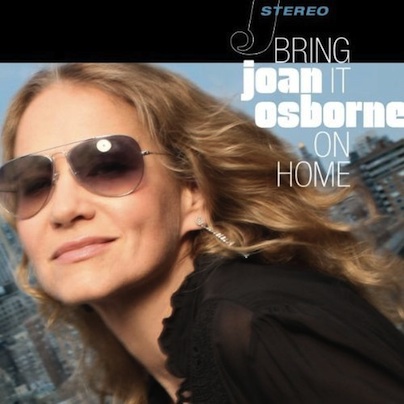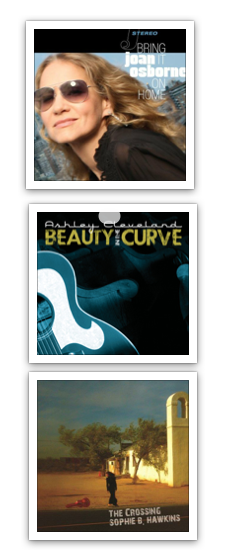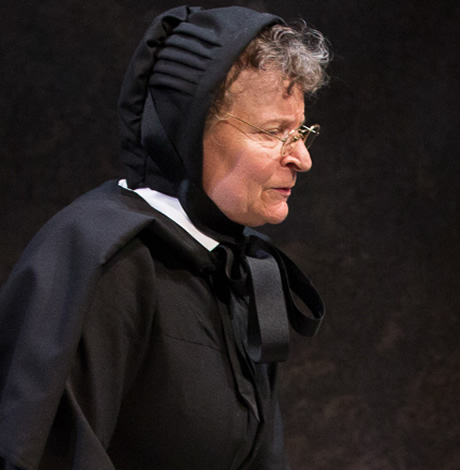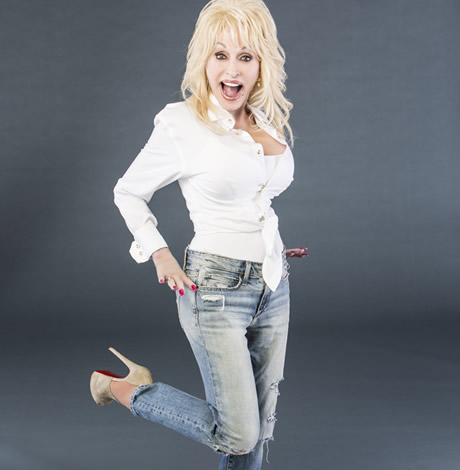Arts & Entertainment
3 great albums you probably missed
Osborne, Hawkins and Cleveland each had overlooked ’12 releases

How much grit and growl you like in your pop music is like creamer in coffee — it’s a personal thing, though most would agree there’s such a thing as overkill. Three great ‘90s singer/songwriters, who all deserve to be much higher on the cultural radar than they are but whom, for various and far-ranging reasons have become victims of zeitgeist nonchalance, released new albums this year that are sadly in serious danger of falling through the cracks.
What’s most surprising is that the two who’ve always been known for rough, sometimes aggressive vocals — Joan Osborne and Ashley Cleveland — have reined in the rougher edges while Sophie B. Hawkins, whose voice has always been a scion of crystalline clarity, sounds sandier and patchier than ever. But in a good way.
It’s a minor miracle that these albums were released at all considering the solid decade of record industry upheaval. There’s little cushion left to support veteran but not top-selling artists, so they’re left to their own devices. They each deserve kudos for soldiering on.
Joan Osborne had done a few indie projects but had — by galaxies — her biggest commercial season in 1995 and 1996 with the album “Relish,” buoyed by her monster hit “One of Us” (which only sounds like a novelty at first; it really has staying power).
Her follow-up, 2000’s “Righteous Love,” took forever to come out. “Bring it One Home,” which dropped in March, is the latest in a string of quasi-concept albums. It’s mostly covers and skews heavy in the blues/R&B vein and sizzles with classy takes on second-tier standards. Unless you’re a historian, there will be cuts here that are new to you as they were to me. Osborne skillfully finds material here that’s not too obscure but not super obvious either (joanosborne.com). Standouts are the fun Ray Charles cover “I Don’t Need No Doctor,” the hard-grooving “Shake Your Hips” and the raucously up tempo “Roll Like a Big Wheel.”
Sophie B. Hawkins managed massive hits on her first two albums — “Damn, I Wish I Was Your Love” from 1992’s “Tongues and Tails” and “As I Lay Me Down” from 1994’s masterpiece “Whaler,” but hit tougher times, at least commercially, by the end of the decade with 1999’s “Timbre.” Her new album, “The Crossing” dropped in June and is her first release since 2004’s uneven-but-still-worthy “Wilderness.”
“The Crossing” is a rich and subversive record that needs several listens to sink in. Initially it sounds pleasant enough but not earth shattering, but slowly its jazzy, wrenching torch songs sneak up on your consciousness and you realize it has several great moments — the bluesy “Heart & Soul of a Woman,” the climax-stoking “Gone Baby” and the deliciously melodic “The Land the Sea and the Sky.” Hawkins includes acoustic remakes of her two monster hits — “Damn” and “Lay” — as bonus cuts and they’re so raw and bare, it’s almost startling. Startlingly effective, too, and wondrous to hear in such unvarnished style (sophiebhawkins.com).
Ashley Cleveland may have the smallest sales of the three but she’s also got three Grammys, all in the rock/gospel category where she set up camp in the early ‘90s after a commercially unfruitful launch at Atlantic with 1991’s “Big Town,” a great and criminally overlooked album, by the way. Her later albums, like 2002’s “Second Skin” and “2006’s “Before the Daylight’s Shot” aren’t as solid as her earlier work, but records like 1993’s “Bus Named Desire” and 1995’s “Lesson of Love” are so masterful, it would be hard for anything to stand up against such classics. She rebounded on sure footing with 2009’s gospel standards project “God Don’t Never Change.” This year’s “Beauty in the Curve” is available but isn’t on iTunes and can only be ordered through her site (ashleycleveland.com).
It’s definitely worth the effort to get — her greasy, garage-y interpretations of gospel songs like “City On a Hill,” “Walk in Jerusalem” and “Thief at the Door,” are balms to an ear burned out on too much of the usual Nashville-santitized contemporary Christian music. Black gospel knows this and has managed to sidestep it for the most part, although that brings its own issues — another essay. But Cleveland brings just enough left-of-center sensibilities to her gospel music to remain peerless. She often succeeds with simplicity — closing cut “Woke Up This Morning With My Mind on Jesus” is just her vocal with electric guitar and she succeeds in convincing you that’s just as it should be. Anything else would have been clutter.

Friday, July 11
“Center Aging Friday tea Time” will be at 2 p.m. in person at the DC Center for the LGBT Community’s new location at 1827 Wiltberger St., N.W. This is a social hour for older LGBTQ+ adults. Guests are encouraged to bring a beverage of choice. For more details, email [email protected].
Women in Their Twenties and Thirties will be at 8 p.m. on Zoom. This is a social discussion group for queer women in the Washington, D.C. area and a great way to make new friends and meet other queer women in a fun and friendly setting. For more details, visit the DC Center’s website.
Go Gay DC will host “LGBTQ+ Happy Hour” at 7 p.m. at Firefly. This event is ideal for making new friends, professional networking, idea-sharing, and community building. This event is free and more details are available on Eventbrite.
Saturday, July 12
Go Gay DC will host “Family Fun Story Time” at 12 p.m. at Freddie’s Beach Bar & Restaurant. Join award-winning drag queen Tara Hoot for songs, stories, bubbles, puppets and dancing. It’s the feel-good event you didn’t know you needed. This event is perfect for kids and kids at heart. Attendance is free and more details are available on Eventbrite.
Miss Capital Pride will host “DC Drag brunch on Rooftop – Penthouse” at 12 p.m. at MXDC Cocina Mexicana. Guests will experience a Mexican brunch infused with Baby Shank’s signature dishes, complemented by delicious margaritas and mimosas, all within the beautiful and spacious atmosphere of MXDC. There will also be outstanding performances by glamorous drag queens and celebrated celebrity impersonators, featuring Taylor Swift, Lady Gaga, Beyoncé, Britney Spears, Nicki Minaj, Ariana Grande, Whitney Houston, Cher, and many more. Tickets cost $30.65 and are available on Eventbrite.
Sunday, July 13
The National Portrait Gallery will host “Stormé at Stonewall” at 1:30 p.m. This is a gallery talk with LJ Roberts and Charlotte Ickes. This exhibition is a light-box portrait of activist Stormé DeLarverie, who is said to have thrown the first brick at Stonewall—the uprising credited with launching the modern LGBTQ+ rights movement in 1969. Roberts created this unconventional portrait in response to DeLarverie’s absence in mainstream narratives about the history of the Stonewall rebellion. Attendance is free and more details are available on Eventbrite.
Monday, July 14
“Center Aging Monday Coffee Klatch” will be at 10 a.m. on Zoom. This is a social hour for older LGBTQ+ adults. Guests are encouraged to bring a beverage of choice. For more details, email [email protected].
Genderqueer DC will be at 7 p.m. in person at the DC Center for the LGBT Community. This is a support group for people who identify outside of the gender binary, whether you’re bigender, agender, genderfluid, or just know that you’re not 100% cis. For more details, visit genderqueerdc.org or Facebook.
Tuesday, July 15
Center Bi+ Roundtable will be at 7 p.m. on Zoom. This is an opportunity for people to gather in order to discuss issues related to bisexuality or as bi individuals in a private setting.Visit Facebook or Meetup for more information.
Wednesday, July 16
Job Club will be at 6 p.m. on Zoom. This is a weekly job support program to help job entrants and seekers, including the long-term unemployed, improve self-confidence, motivation, resilience and productivity for effective job searches and networking — allowing participants to move away from being merely “applicants” toward being “candidates.” For more information, email [email protected] or visit thedccenter.org/careers.
Thursday, July 17
The DC Center’s Fresh Produce Program will be held all day at the DC Center for the LGBT Community. People will be informed on Wednesday at 5 p.m. if they are picked to receive a produce box. No proof of residency or income is required. For more information, email [email protected] or call 202-682-2245.
Virtual Yoga with Charles M. will be at 7 p.m. on Zoom. This is a free weekly class focusing on yoga, breath work, and meditation. For more details, visit the DC Center for the LGBT Community’s website.
Lit Lovers: Book Club for Seniors will be at 2 p.m. on Zoom. The book selection for July is “Rubyfruit Jungle” by Rita Mae Brown. For more details, visit the DC Center’s website.
Poly Discussion Group will be at 7 p.m. on Zoom. This is an inclusive, welcoming, virtual safer space to talk about all things polyamorous — the rapturous, the confused, the pure YIKES, we want to hear them all. For more details, email [email protected].
Television
ICYMI: ‘Overcompensating’ a surprisingly sweet queer treat
A sweet, savvy show about breaking free to embrace your true self

Pride month 2025 is now behind us, and while it’s safe to say that this year’s celebrations had a darker edge than usual, it’s also true that they came with a particularly rich bounty of new queer movies and shows to entertain us – so many, in fact, that even if we are facing a lull until the fall another harvest of fresh content, there are still plenty of titles – which, for whatever reason, were off your radar – for you to catch up on in the meantime.
One of the most notable of these – the bingeworthy series “Overcompensating” (now streaming on Amazon Prime) – will most definitely have been ON the radar for the plentiful fans of creator and star Benito Skinner, the actor/comedian who rose to viral fame through his content on platforms like Instagram, YouTube, and TikTok. For anyone else, it might have easily slipped through the cracks.
Created and written by Skinner as a loosely autobiographical “college comedy,” it aims for the kind of raucous, explicitly sexed-up tone one expects from the genre as it centers on Benny (Skinner), newly arrived as a freshman at prestigious Yates University. A former football jock and “golden boy” at his midwestern high school, he’s the picture of idealized youthful masculinity; he’s also deep in the closet, struggling to keep his sexuality hidden and maintain his macho front under the intense scrutiny of the college’s social scene – and under the resentful eye of his older sister Grace (Mary Beth Barone), who has already secured her own place at the top of the pecking order.
In the first episode, Benny’s difficulties are eased when he meets Carmen (Wally Baram), another freshman trying to navigate the politics of college life; a gamer from a home marred by tragedy, she’s an outsider who feels like she’s putting on an act, too, and they click – giving him the convenient “cover” of female companionship while providing them both with much-needed support and encouragement. He’s also befriended by a handsome film major from England (Rish Shah), who has already caught his eye, stirring other kinds of feelings and possibly even reciprocating them. Meanwhile, he’s being courted by the school’s “exclusive secret society” – headed by his sister’s aggressively “alpha” boyfriend Pete (Adam DiMarco) – and trying to stay interested in his studies, despite a growing realization that a career in business doesn’t actually appeal to him all that much.
That’s a lot to juggle for anybody, even an overachiever like Benny – whose “lucky” life so far has largely been the result of playing a role he is finding harder and harder to maintain. As the series goes on through its eight-episode arc, it becomes clear that he’s not the only one who is “keeping up appearances,” and he, along with the other confused and damaged young people in his orbit, begins the painful (but often hilarious) process of evolution that is required in order to become truly oneself.
Directed toward appealing to a younger demographic, “Overcompensating” is the kind of show that requires a few episodes worth of invested time to make an impression that feels like substance. Full of the bawdy farcical antics that go hand in hand with stories about hormonally charged college kids, it’s not above leaning into the formulas and tropes that have always driven these kinds of comedies. At first, while its broadly comedic strokes and frequently explicit sexual hijinks might elicit plenty of chuckles, the show might easily feel tiresome for more mature audiences; there’s a nostalgic fun to it, made even more appealing, somehow, by the “political incorrectness” of its frequently sexist and homophobic humor, but for a while things may feel like an unnecessary attempt to reinvent “Animal House” for the Gen Z crowd.
By the time the season reaches its halfway point, however, things have started to get real. The antics of these horny almost-adults take on a more pointed absurdity, informed by the increasingly tangled web of defensive deceit they weave among themselves – and, as things draw toward a cliffhanger climax, the consequences of maintaining it – until it achieves a sense of empathy toward them all. There’s a wisdom that smacks of lived authenticity underlying the whole affair, transforming it from the “sexploitative” teen comedy of its surface into something deeper. To be sure, things stay expectedly wacky, and the soap-operatic melodrama of its twists and reversals continue to maintain the show’s “mature YA” appeal; but beneath those trappings, by the end of the season a truer identity has begun to emerge, just as its characters have begun to find their own levels of self-actualization for themselves.
As creator, primary writer, and star, it’s obviously Skinner who deserves much of the credit. While it might be tempting, early on, to dismiss the show as an “ego project,” the internet-spawned sensation proves his talents quickly enough to get past such judgy suspicions, delivering a pitch-perfect blend of sauciness and sensitivity that extends its appeal toward both ends of the taste spectrum; just as crucially, he brings the same aforementioned “lived authenticity” to his winning performance – after all, he’s essentially playing himself in a fictionalized version of his own life – while also making sure that equal time (and compassion) is afforded all the other characters around him, each of whom are pushing at the boundaries of their own respective “closets,” too. It’s unavoidable to notice that – like most of his co-stars – he’s plainly a decade too old to be playing a college student; but by the time we reach that crucial halfway turning point, we’ve become too engaged by him to care.
The show is full of excellent performances, in fact. Relative newcomers Baram and Barone offer layers of complex nuance, while the more familiar DiMarco (“White Lotus”) is close to heartbreaking as the toxic BMOC clinging to the illusion of power as his life begins unraveling around him. Other standouts include the mononymic actress Holmes as Carmen’s “wild child” roommate, solidly likable turns as Benny’s parents from mature veterans Connie Britten and Kyle MacLachlan (whose presence, along with stylish elements in several key scenes, hints at an homage-ish nod to the late David Lynch), and podcaster Owen Thiele as an openly gay fellow student who has Benny “clocked” from the moment they meet. Finally, Lukas Gage makes a deep impression as a former high school teammate at the heart of Benny’s most haunting memory.
There’s no official word yet on whether “Overcompensating” will be renewed for a second season, despite the multiple loose ends left dangling at the end of its first; it has proven to be popular, and Skinner’s large fanbase makes it likely that the story will continue. Even if it doesn’t, the place of uncertainty in which it has left its characters rings true enough to serve as a satisfying endpoint.
As for us, we hope that won’t happen. For all its sophomoric humor, generic plot twists, and purposefully gratuitous sexual titillation, it’s one of the sweetest, kindest, and most savvy shows we’ve seen about breaking free from conformity to embrace your true self – and that’s a message that applies whether you’re queer, straight, or anywhere in between.
Photos
PHOTOS: Independence Day Weekend in Rehoboth
Wicked Green Pool Party, fireworks among festivities

Vacationers and residents alike enjoyed Independence Day Weekend activities in Rehoboth Beach, Del. The Wicked Green Pool Party drew hundreds to the CAMP Rehoboth fundraiser on Saturday. That evening, revelers went to the rooftops to watch the fireworks display.
(Washington Blade photos by Daniel Truitt)













-

 Federal Government2 days ago
Federal Government2 days agoTreasury Department has a gay secretary but LGBTQ staff are under siege
-

 Virginia3 days ago
Virginia3 days agoDefying trends, new LGBTQ center opens in rural Winchester, Va.
-

 District of Columbia2 days ago
District of Columbia2 days agoGay GOP group hosts Ernst, 3 House members — all of whom oppose Equality Act
-

 District of Columbia2 days ago
District of Columbia2 days agoD.C. police seek public’s help in July 5 murder of trans woman










